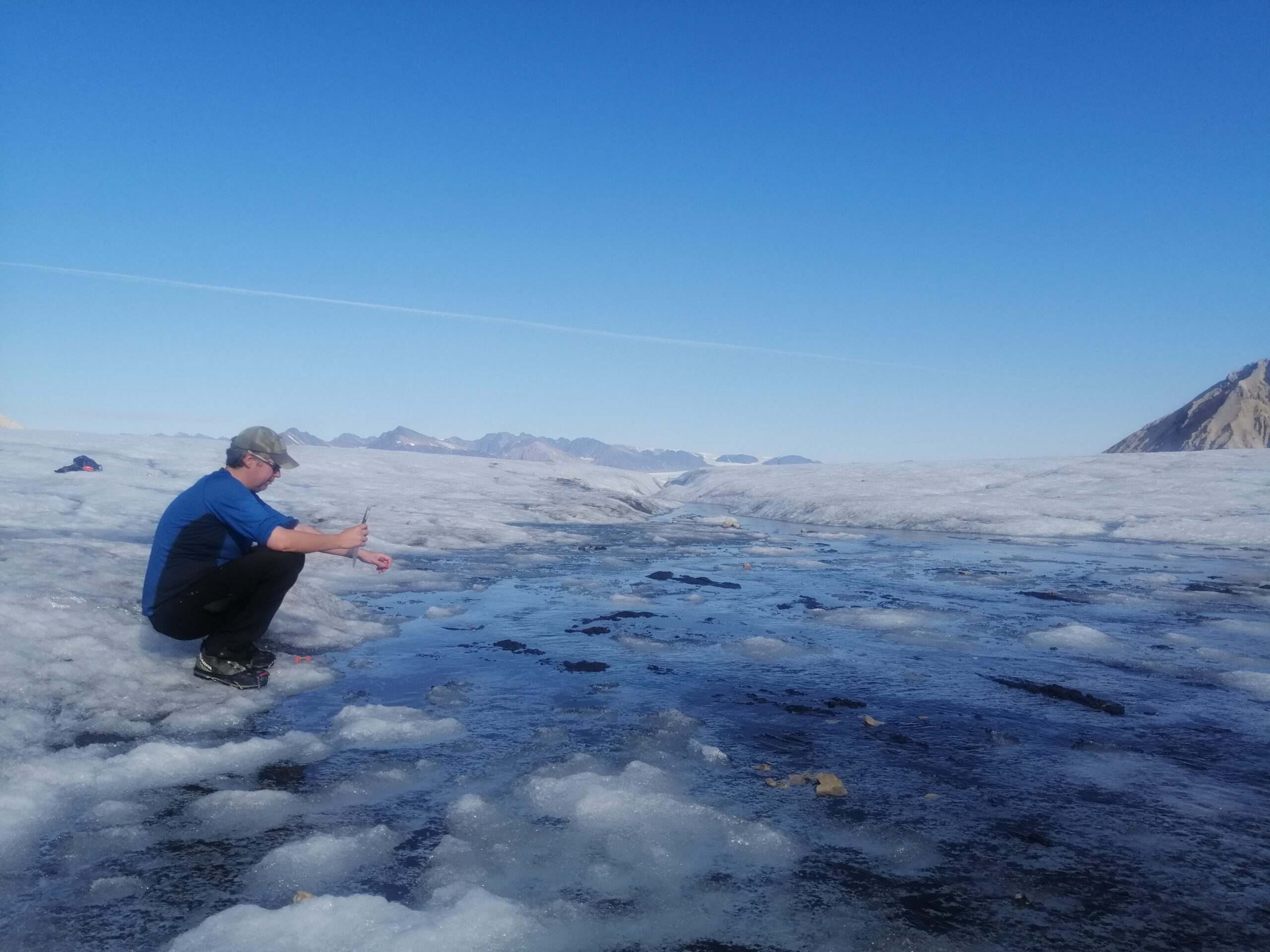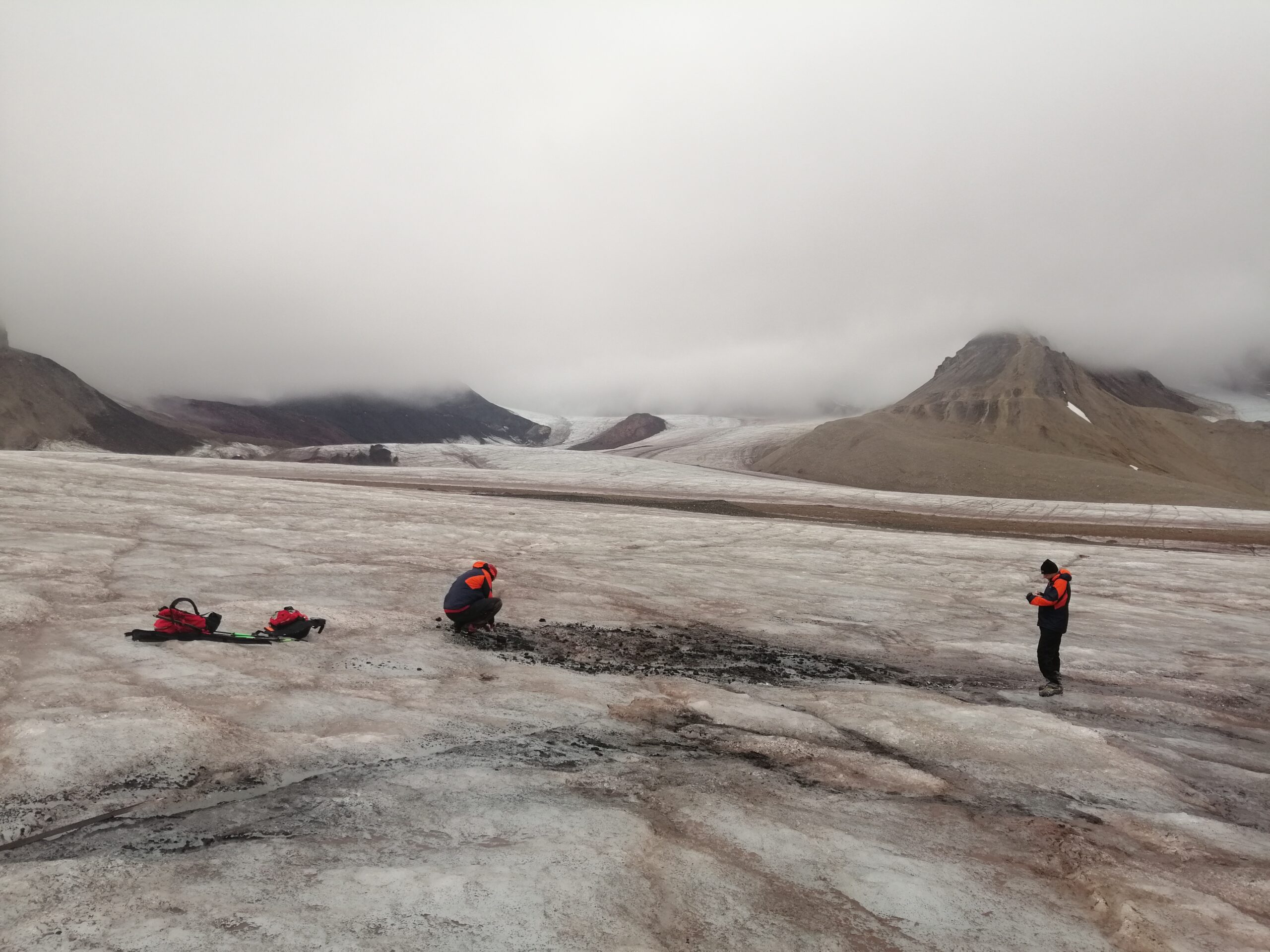Glaciers host microbial ecosystems which exhibit surprising levels of biodiversity and activity despite the seemingly austere conditions for life on ice. In the light of the rapid climate change affecting the High Arctic there is an urgent need to understand the spatial and temporal constraints on these ecosystems, as well as their metabolic processes. The projects key goals relate to the stated aims and objectives of NERC Standard Grant NE/ V012991/1 and help the delivery of the project by accessing a diverse range of glacier surfaces to collect samples of microbiota associated with debris on bare ice surfaces. This will enable a comparative approach to be taken for constraining the spatial and temporal variability in supraglacial microbiota and cognate metabolic processes.
The CRYO365 project’s overall hypothesis is that glacier surfaces host light-independent microbial metabolic activities, thus allowing microbial activities in unexpected conditions with neglected contributions to nutrient cycles and greenhouse gas production. The team are using the High Arctic glaciers of Svalbard in every season to compare their microbial communities in the depths of polar night, the cold of the winter, the spring thaw and the height of summer. At each glacier the team have collected samples for molecular analyses and measure microbial activities.

Following field campaigns hosted by UNIS in Longyearbyen in 2022 and 2023, the team successfully conducted sampling in summer 2023 with the assistance of the NERC Arctic Research Station and the Norwegian Polar Institute. During 2024, three campaigns were mounted, in March, June, and August. These collected ice surface samples, cryoconite and debris material from a range of glaciers around Kongsfjorden. The team are currently working on molecular analyses of DNA and RNA from these samples and conducting experimental incubations in cold laboratory facilities at Aberystwyth University. While the CRYO365 project is focused on the changing microbial ecology of glacier surfaces in different seasons, a new NERC Arctic Office supported project by the team, in cooperation with a team of Japanese researchers is exploring the transitions between seasons, with fieldwork conducted at the National Institute of Polar Research (NIPR) facility in Ny-Ålesund in September 2024 with the assistance of the NERC Arctic Research Station team, and planned for February 2025 for deployment from the NERC Arctic Research Station.

CRYO365 is led by Dr Arwyn Edwards from Aberystwyth University with field team members Professor Neil Glasser, Professor Andrew Mitchell (Aberystwyth University) and Dr Karen Cameron (Glasgow University).